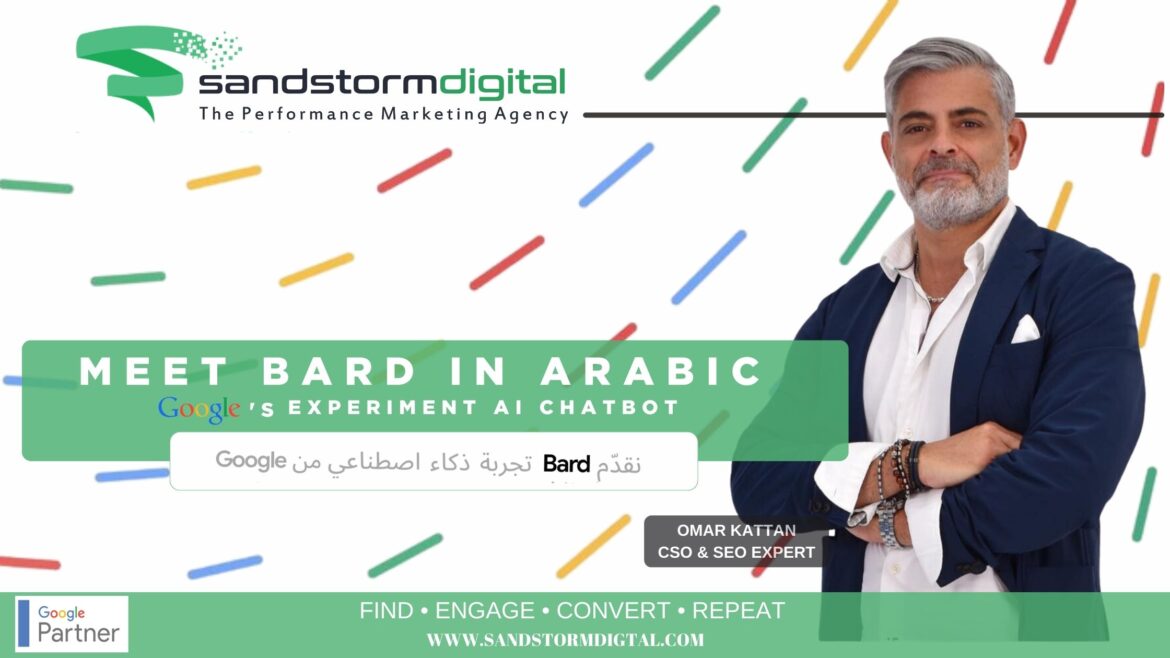Bard can now respond in over 40 languages including Arabic. As of today, it is possible to collaborate with Bard in Arabic. Bard is powered by PaLM2 which has a multilingual understanding of information, and get this, it can understand questions in over 16 Arabic dialects including Egyptian colloquial Arabic and Saudi colloquial Arabic, and share responses in Modern Standard Arabic (MSA).
Here are some examples of how Arabic speakers can use Bard:
- Translation between Arabic and English. For example, you could ask Bard to translate a sentence from Arabic to English or translate a document from English to Arabic.
- You can use it to generate Arabic text. For example, you could ask Bard to write a poem in Arabic or to write a paragraph of text in Arabic about a specific topic.
- You can use it to answer your questions in Arabic. For example, you could ask Bard about the meaning of a word in Arabic, or you could ask it about a historical event in Arabic.
Bard is still in Beta and under development, according to Bard “ I am still learning Arabic, but I am able to understand and respond to a wide range of Arabic queries. If you have any questions about Bard in Arabic, please feel free to ask me.”
While testing it, we found that it provided inaccurate responses as well as not fully comprehending our questions. However, clearly, it is in the development stage as Google highlights that its currently an ‘experiment’.
Below are the two challenges that Bard and other ai bots will have to overcome when creating their product in the Arabic language:
Understanding Context
We get it, the race is on between Chat GPT and Bard – we did see slight inaccuracies in responses from both ai chatbots, however, it is still in the early stage of development. Google is promoting Bard as an ‘AI experiment, stating it may give inaccurate or inappropriate responses.
Bard has a long way to go for it to truly understand the intents and entities of the Arabic language but it’s a great start. Just by doing some basic searches on our own, we find that it doesn’t fully understand our query and results are slightly inaccurate but we are optimistic that with machine learning and human input, it will be optimized to help facilitate users queries in the future. We have also observed that Bard doesn’t have the ability to understand context in longer conversations at this time.
Product lead, Jack Krawczyk, said, “Bard is an experiment,” he added. “We want to be bold and responsible.”
Incorporating Dialect
Bard now has the ability to understand questions in more than 16 Arabic dialects, such as Egyptian and Saudi, but always responds using Standard Arabic. Arabic is a complex language with unique characteristics that differentiate it from other languages. One of the key challenges in developing Arabic AI chatbots is the vast diversity of dialects spoken across different regions. Each dialect has its own vocabulary, grammar, and pronunciation, making it challenging to create a standardized chatbot that can understand and respond accurately to various dialects. Navigating these linguistic complexities requires extensive language resources and sophisticated natural language processing (NLP) algorithms.
My feeling is that Bard is being reactive and competing with ChatGPT, giving us a rushed and incomplete product. Competition is always great for innovation, but it’s clear that Bard is still in Beta mode and will be for a while.
ChatGPT seems to be more advanced at this stage in language learning, especially in Arabic, but Google has evidently shown that it is working hard to be part of the race as an ai chatbot. We will keep a close eye on the developments and would love to hear from you, leave a comment on your experience collaborating with Bard in Arabic.

